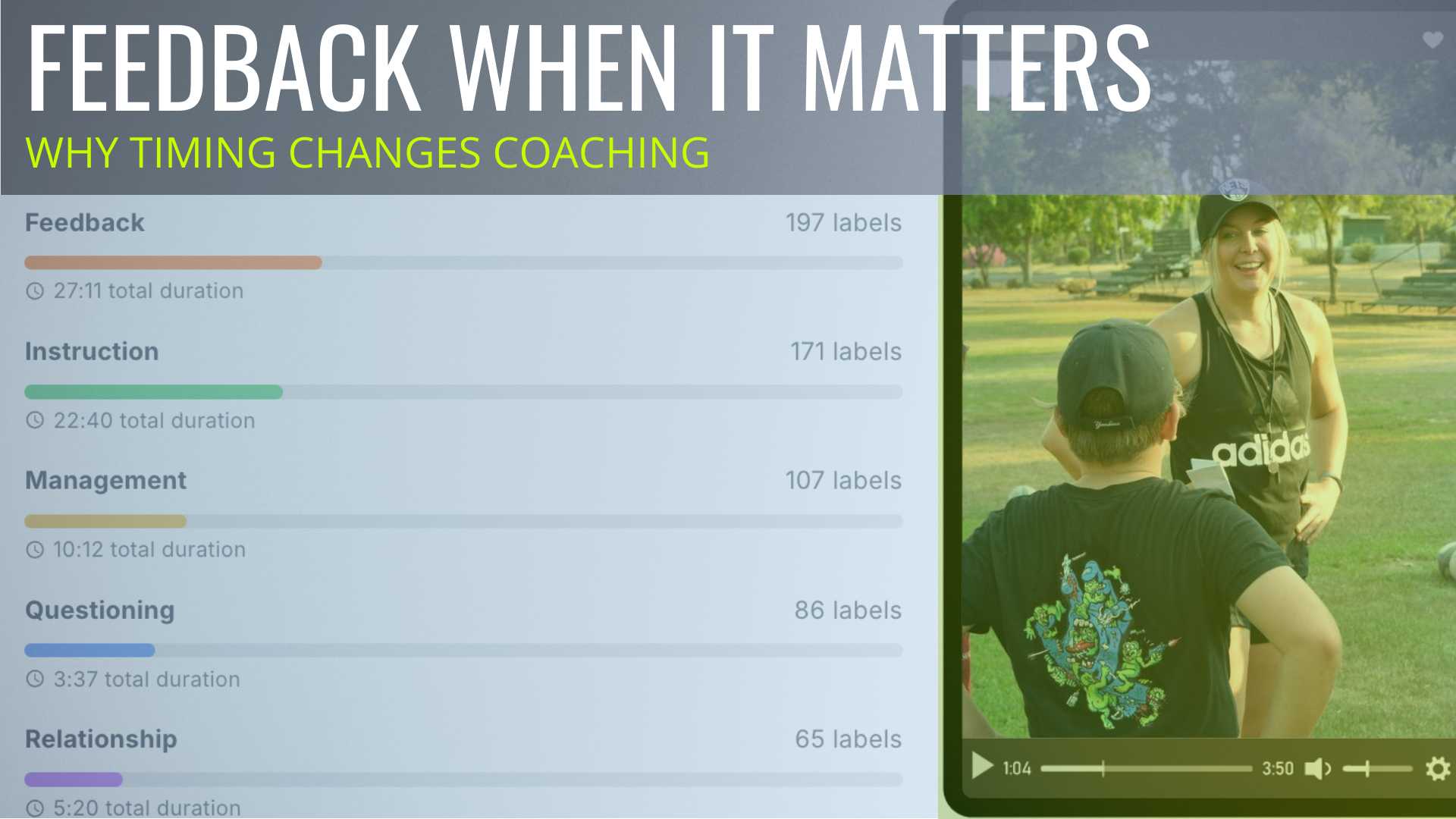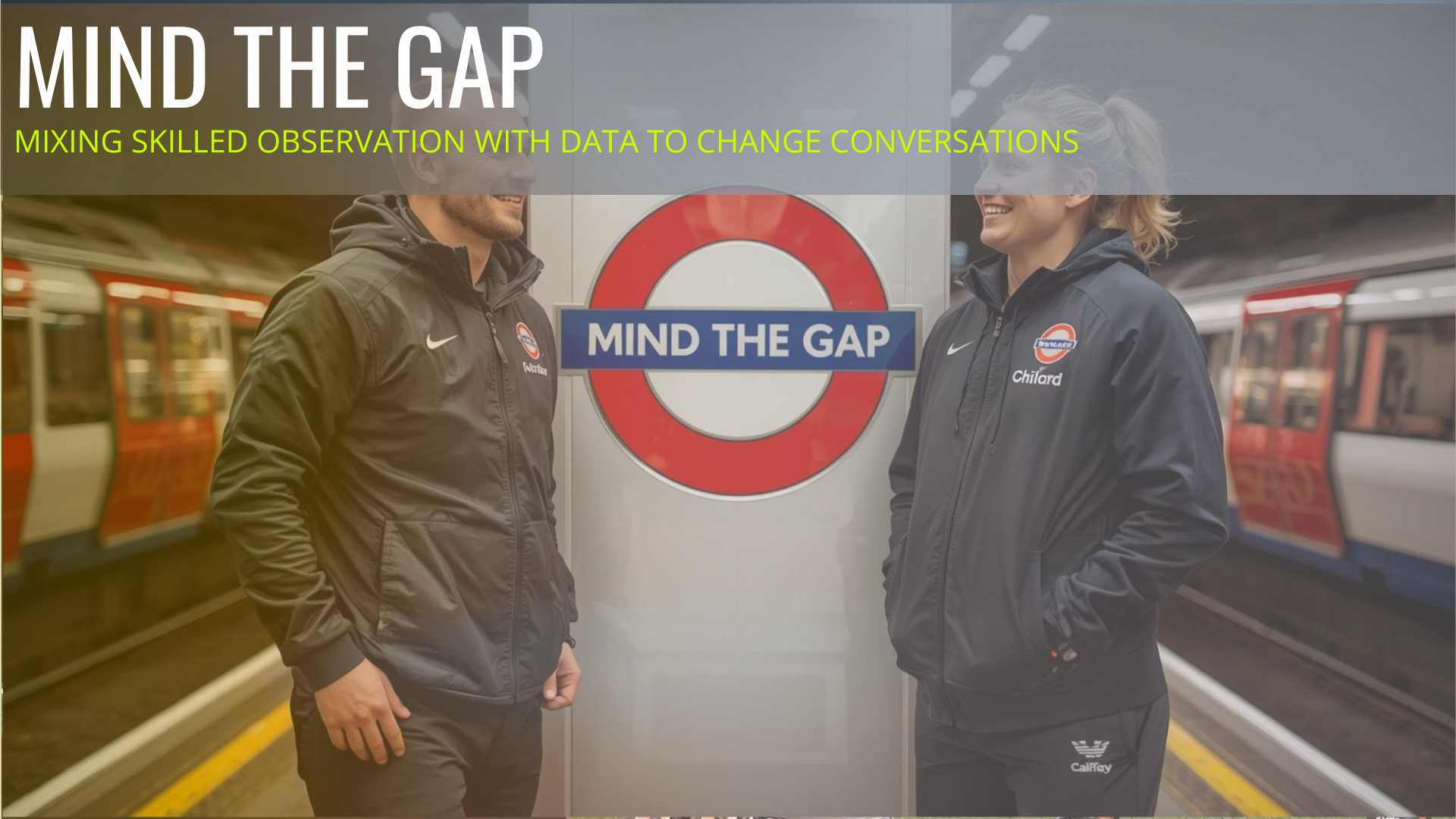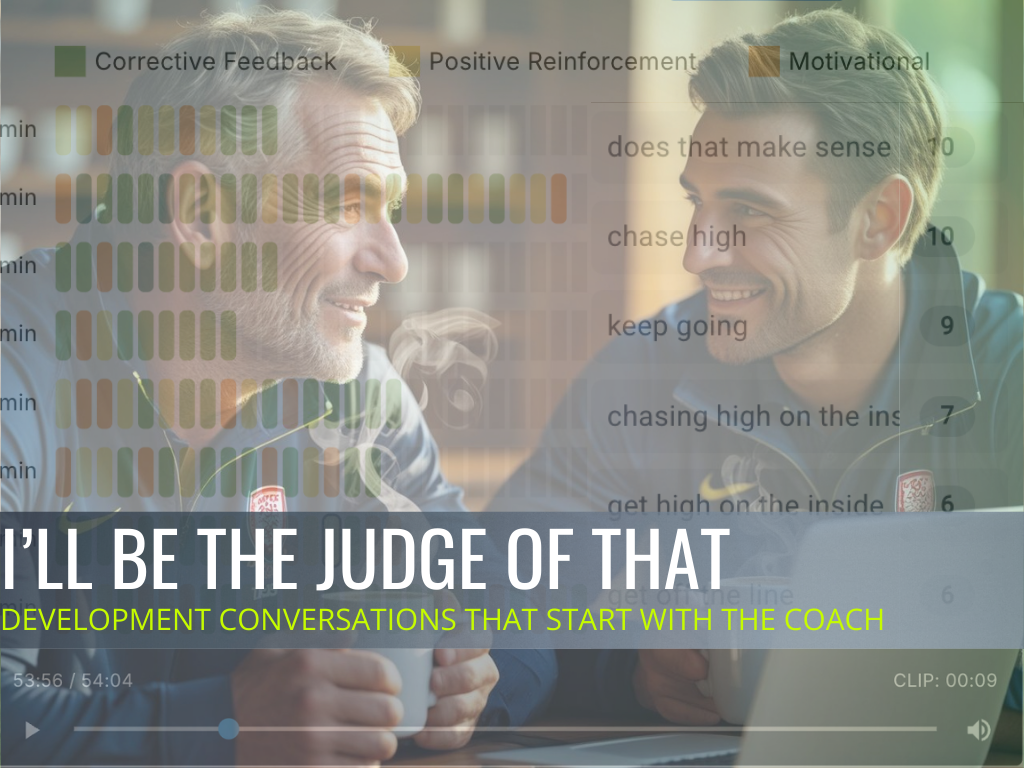From Counting to Noticing
Beyond the Dashboard
A coach who’s been involved in formal observation or mentoring can visualise the numbers. The session debrief comes with neat tables and pie charts:
- 42 questions asked
- 68 instructions given
- 15 minutes of player talk time
It looks organised, scientific, measurable, and it is.
But for most coaches, those numbers don’t change anything about what happens in tomorrow’s training session. They might be interesting, they might even spark a “that’s more than I thought,” but do they affect behaviour?
The real change, the kind that sticks, happens when coaches start noticing differently. And noticing is not the same as counting.
The Problem with Totals
Counting interactions is useful for baseline data, moderation, and ensuring consistency across a cohort. But the raw numbers don’t carry context. If you hear, “You gave 68 instructions,” what does that actually tell you?
- Were they well-timed?
- Did they help or hinder?
- Did they prompt thinking or close it down?
Without the surrounding moment, the numbers are just noise.
The Value of Moments
The game-changer is shifting from quantity to quality, and from metrics to moments. Here's an example:
You’re reviewing your own session and see a clip where you gave a short, sharp instruction. Watching it back, you notice the player’s eyes drop, their body language tightens.
No stat could have told you that this instruction, at that intensity, in that moment, had that effect. Those moments are where development lives. They’re also where coaching conversations get rich. A mentor can say, “What might you have done differently there?” and the coach can see it, not imagine it.
From Data Collection to Conversation Starter
The purpose of observation data isn’t to fill a spreadsheet. It’s to spark reflection and decision-making. When we move beyond “you asked X questions” to “let’s watch the two questions that shaped this practice”, the focus shifts.
The coach is no longer defending their approach; they’re exploring possibilities.
How SAM Makes It Possible
- Upload a 35-minute session from your phone, GoPro, facility camera, or existing platform.
- In 20 minutes, you have an objective, timestamped snapshot.
- SAM applies filters: questioning, open v closed, instruction types, talk time, sentiment cues, relationship moments.
- Instead of scrolling or guessing, you jump straight to the clips that carry weight.
The key difference? SAM doesn’t just count interactions. It helps you find the ones worth noticing.
Practical Application: Try This in Your Next Session
- Set a Simple Intention: Pick one behaviour to notice e.g., “End each block with a question.”
- Record the Session: No need for a film crew; a phone works fine.
- Use SAM to Find Two Clips: Focus on where your chosen behaviour appeared (or didn’t).
- Reflect, Don’t Just Review: Watch the clip, ask yourself, “What was the impact here?”
- Make One Small Adjustment: Apply it in your next session.
Closing Reflection
Counting is the start. Noticing is the shift. And when you have the right moments in front of you, the conversation changes from what happened to what’s possible next time. That’s where coaching gets better, and continues to evolve.
If you’d like to find out more and try SAM out for yourself, we’d love to hear from you.

.png)




